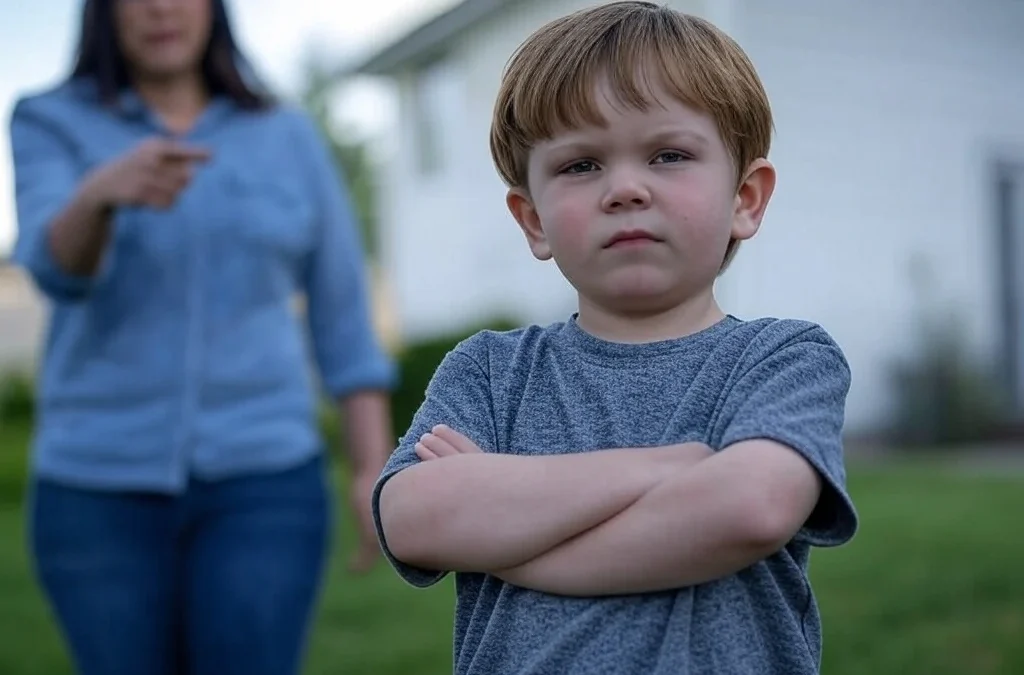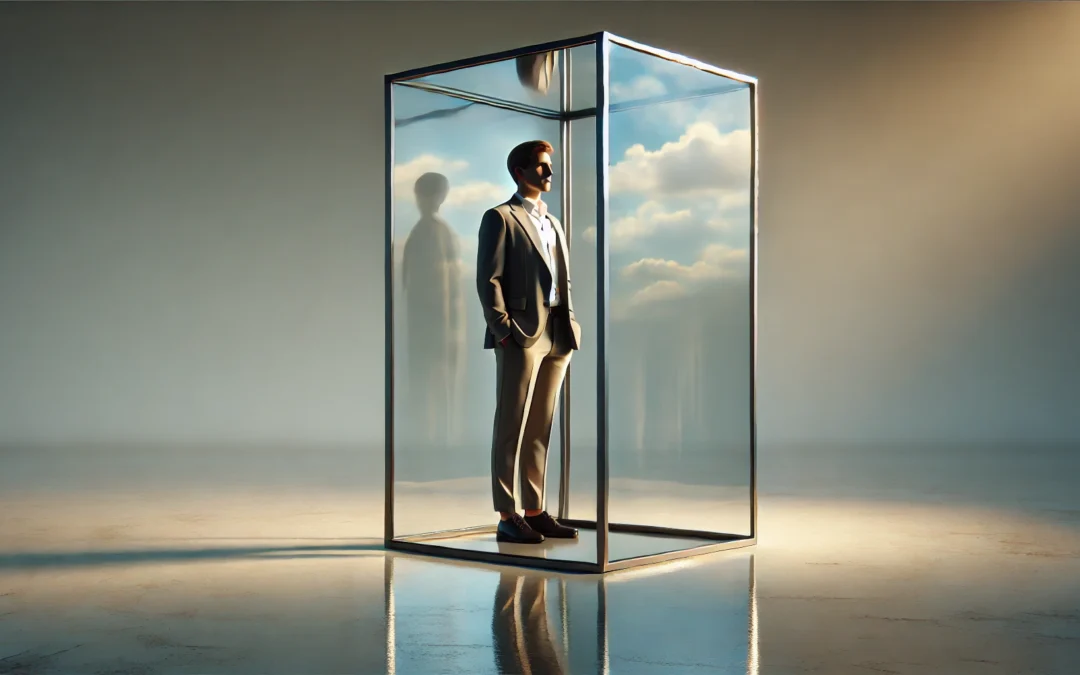Imagine walking into a room full of people and feeling an unspoken pressure to act a certain way. This happens to all of us, often without even noticing. Societal expectations influence our lives from the very beginning. They affect the clothes we wear, the careers we choose, and the relationships we form. These pressures can come from family, culture, media, or even social media, shaping how we act, think, and feel in different situations.
Recognizing societal expectations helps us decide which ones to follow and which to question. For instance, many feel the push to follow a traditional life path: attend college, secure a job, marry, and start a family. But not everyone fits this mold – and that’s perfectly fine. In this article, we’ll look at 40 examples of societal expectations that shape our daily lives. Whether large or small, these pressures play a big role in defining who we are and how we connect with the world.
Understanding Societal Expectations
Societal expectations refer to the set of standards and norms that a society collectively holds regarding acceptable behavior, values, and roles of individuals within the community. These expectations are shaped by cultural, historical, and social influences and can vary widely between different societies and communities. They dictate how individuals are anticipated to act in various situations, influencing everything from professional conduct to personal relationships and lifestyle choices.
Societal expectations play a pivotal role in guiding individuals on how to interact with one another and contribute to the community. They help establish a sense of order and predictability, which is essential for social cohesion and stability. For example, societal expectations might dictate certain behaviors in the workplace, such as professionalism and punctuality, or outline family roles, such as parental responsibilities and children’s education.
These expectations are not static; they evolve over time as societies change and adapt to new challenges and opportunities. Factors such as technological advancements, economic shifts, and cultural exchanges can lead to changes in what is considered acceptable or desirable behavior. Additionally, societal expectations can be challenged by individuals or groups advocating for social change, leading to shifts in norms and values.
The Best Examples of Societal Expectations
Societal expectations influence how individuals behave and perceive themselves in various settings. These expectations can shape our actions, thoughts, and interactions with others. Here are forty examples that highlight the essence of societal expectations:
1. Career Paths
Many people feel pressure to pursue stable and prestigious careers, such as becoming a doctor, lawyer, or engineer. Society often values these professions for their perceived security and status. As a result, individuals might prioritize these career paths over personal interests or passions.
2. Marriage and Family
In many cultures, there is an expectation to marry by a certain age and start a family. This can affect personal decisions, leading individuals to enter relationships or have children based on societal timelines rather than personal readiness. The pressure to conform can sometimes overshadow individual desires.
3. Physical Appearance
Society often sets standards for physical appearance, influencing how people dress, groom, and maintain their bodies. For instance, there might be a strong emphasis on being slim or muscular, pushing individuals to conform through dieting or exercise. This expectation can impact self-esteem and body image.
4. Small Talk in Social Settings
Engaging in small talk is often an expected social norm, especially in casual or professional gatherings. People may feel obligated to discuss topics like the weather, weekend plans, or recent events, even if they find such conversations superficial or uninteresting. This norm serves as a bridge for social interaction but can feel burdensome to some.
5. Success and Wealth
Society often equates success with wealth and material possessions. People might feel compelled to achieve a certain level of financial success to be considered accomplished. This expectation can lead to stress and a constant pursuit of more, sometimes at the cost of personal happiness.
6. Educational Attainment
There is a strong societal belief that higher education leads to better opportunities. Many feel pressured to attend college or university, even if it doesn’t align with their career goals. This expectation can lead to significant financial burdens and stress over academic performance.
7. Social Media Presence
In today’s digital age, having a presence on social media is often expected. People may feel pressured to share their lives online, maintain a certain image, or gain followers. This can result in curated portrayals of life that may not reflect reality, impacting mental health and self-image.
8. Cultural Traditions
Cultural traditions can impose expectations on behavior, celebrations, and rituals. Individuals might feel obligated to participate in cultural practices, even if they don’t personally resonate with them. This can create a conflict between personal beliefs and cultural expectations.
9. Professional Conduct
In the workplace, there are expectations around professionalism and conduct. Employees might feel pressure to conform to specific dress codes, communication styles, or work ethics. These expectations can influence how individuals express themselves and interact with colleagues.
10. Community Involvement
Communities often expect members to participate in local events or volunteer activities. People might feel pressured to engage in community service to be seen as contributing members. While this can foster community spirit, it can also lead to stress for those who have limited time or resources.
11. Environmental Responsibility
In recent years, there has been a growing expectation for individuals to adopt environmentally friendly habits. People may feel the pressure to recycle, reduce waste, and minimize their carbon footprint. This societal push can lead to changes in lifestyle, such as choosing sustainable products or altering travel habits, even if it requires extra effort or cost.
12. Emotional Expression
Different cultures and societies have varying expectations about how emotions should be expressed. In some places, showing emotions openly is encouraged, while in others, it may be seen as a sign of weakness. This can affect how individuals process and communicate their feelings, sometimes causing them to suppress their emotions to fit in.
13. Language and Communication
Society often dictates the language and communication styles considered acceptable or professional in certain contexts. For example, using formal language in business settings or adopting the dominant language of a region can be expected. These norms can influence how people speak and write, sometimes creating barriers for those who are not native speakers.
14. Dietary Choices
Societal expectations can extend to what people eat and drink. In some cultures, there is pressure to adhere to traditional diets or avoid certain foods. This can influence personal dietary choices, leading individuals to conform to societal norms even when they have different preferences or health needs.
15. Age-Related Milestones
There are often societal expectations tied to specific ages, such as learning to drive at sixteen or retiring at sixty-five. These milestones can create pressures to achieve certain life goals by a particular age, regardless of individual circumstances or desires. This can lead to stress and a sense of inadequacy if these expectations are not met.
16. Political Engagement
In many societies, there is an expectation for individuals to be politically informed and engaged. People might feel pressured to vote, participate in political discussions, or support specific movements. This can lead to increased political awareness, but it can also create tension for those who are uninterested or disillusioned with politics.
17. Personal Privacy
Expectations around privacy can vary greatly, with some societies valuing openness and others prioritizing discretion. This can affect how individuals share personal information, both online and offline. Navigating these expectations can be challenging, especially as digital platforms continue to blur the lines between public and private life.
18. Religious Observance
In many communities, there are expectations regarding religious practices and observance. Individuals may feel compelled to attend religious services, celebrate specific holidays, or follow certain rituals. These expectations can influence personal beliefs and practices, sometimes leading to internal conflict if they do not resonate with the individual’s own views.
19. Fashion Trends
Fashion is often subject to societal trends and expectations. Individuals may feel pressure to dress in a certain way to be perceived as fashionable or socially acceptable. This can lead to frequent changes in wardrobe and style, sometimes at the expense of personal taste or financial resources.
20. Leisure Activities
Society often has expectations about how people should spend their leisure time. There may be pressure to engage in popular activities, such as sports, traveling, or attending social events. This can influence how individuals prioritize their free time, sometimes leading them to participate in activities for the sake of fitting in rather than personal enjoyment.
21. Public Manners
Society often sets clear expectations around how people should behave in public spaces. For example, being polite, waiting in line, and speaking in moderate tones are often considered standard behaviors. Those who fail to meet these expectations may be judged or criticized. These norms help maintain social order but can feel restrictive to some individuals.
22. Parenting Styles
Parenting comes with significant societal expectations. People may feel pressured to adopt specific parenting methods, such as emphasizing academic achievement, extracurricular activities, or certain disciplinary approaches. These expectations can affect how parents raise their children, often influenced by cultural norms or social trends.
23. Financial Independence
In many cultures, there is an expectation to achieve financial independence by a certain age, such as moving out of a parent’s home or being self-sufficient. This pressure can lead young adults to take on jobs or responsibilities earlier than they might feel ready for, impacting their decisions and financial priorities.
24. Networking and Socializing
There is often an expectation to build and maintain social networks, especially in professional and community contexts. People may feel compelled to attend social gatherings, connect with others on platforms like LinkedIn, or join professional groups. While this can foster valuable relationships, it can also be daunting for introverted individuals.
25. Holidays and Celebrations
Society often dictates how holidays should be celebrated, such as exchanging gifts during Christmas or hosting large gatherings for birthdays. People may feel pressure to follow these customs even if they prefer simpler or alternative celebrations. This can sometimes lead to financial strain or stress.
26. Housing Choices
There is often societal pressure to own a home by a certain age, as renting long-term can be perceived as less stable or successful. This expectation can drive people to prioritize purchasing property, even when it may not align with their financial situation or lifestyle preferences.
27. Healthy Lifestyle
Society places a strong emphasis on maintaining a healthy lifestyle, which includes exercising regularly, eating nutritious foods, and avoiding harmful habits. This can push individuals to adopt certain routines or diets, even if they feel overwhelming or unsustainable in the long term.
28. Emotional Resilience
There is often an expectation to stay strong and resilient during tough times. People may feel pressured to avoid showing vulnerability or asking for help, as society can sometimes value independence and stoicism over openness. This expectation can affect mental health and the way individuals handle challenges.
29. Respect for Authority
Society typically expects individuals to respect authority figures, such as teachers, employers, or government officials. This norm is taught from a young age and influences how people interact with those in positions of power. While this promotes order, it can sometimes discourage questioning or challenging authority when necessary.
30. Milestones in Relationships
Society often outlines milestones in relationships, such as dating, engagement, and marriage, with timelines that vary by culture. Couples may feel pressure to meet these expectations at specific stages, even if they are not ready. This can lead to decisions that prioritize societal approval over personal readiness or preferences.
31. Hospitality Norms
In many cultures, there are strong expectations about how hosts should treat their guests. This can include offering food, drinks, or entertainment, even if it imposes a financial or time burden. Hosts may feel pressured to meet these societal standards to avoid being seen as unwelcoming or rude.
32. Public Displays of Affection
Societies often have clear norms about acceptable levels of affection shown in public. In some cultures, holding hands or kissing in public is commonplace, while in others, it may be frowned upon. These expectations can influence how couples behave in public settings, regardless of their personal comfort levels.
33. Speech and Tone
There are societal norms about how people should speak in different situations. For example, it’s often expected to speak respectfully to elders or use formal language in professional settings. These expectations can shape how individuals communicate, especially in multicultural environments where norms may vary.
34. Gift-Giving Customs
Societies often have expectations about when and how gifts should be given. For instance, people may feel obliged to bring gifts to weddings, birthdays, or holidays. These customs can create stress for individuals who cannot afford to meet these expectations or who do not share the same cultural practices.
35. Work-Life Balance
There is increasing societal focus on achieving a healthy work-life balance. People may feel pressure to appear equally dedicated to their careers and personal lives. This expectation can lead to guilt for those who prioritize one over the other or struggle to balance competing demands.
36. Celebrating Success
Society often expects individuals to celebrate personal or professional successes, such as promotions, graduations, or anniversaries. While these celebrations can be joyful, they may also feel obligatory to some, especially for those who prefer to keep achievements private.
37. Friendship Maintenance
There are societal expectations around staying connected with friends through regular calls, messages, or meetups. Individuals may feel guilty if they fail to maintain friendships due to time constraints or personal challenges. This can lead to stress over perceived neglect or loss of relationships.
38. Conversation Topics
There are often unspoken societal rules about which topics are appropriate in specific contexts. For example, politics and religion might be avoided in casual conversations. These norms can guide or restrict discussions, influencing how people interact in social or professional settings.
39. Appearance of Happiness
Society often expects individuals to project a positive image, even during difficult times. This can include smiling in public or avoiding complaints about personal struggles. These expectations can pressure people to suppress genuine emotions, creating a disconnect between appearance and reality.
40. Keeping Up With Trends
There is often societal pressure to stay updated on current trends in technology, entertainment, or fashion. People may feel left out or judged if they do not follow these trends, even when they lack interest or the financial means to participate.
How Do Societal Expectations Affect People?
Societal expectations have a deep impact on people’s lives, shaping how they think, act, and feel. From childhood to adulthood, these unspoken rules influence daily decisions, relationships, and self-image. While some expectations provide structure and stability, others can create stress and limit personal freedom.
One way societal expectations affect people is by influencing their choices. For example, many feel pressured to follow a traditional path, such as pursuing a certain career, getting married, or starting a family by a specific age. This pressure can lead individuals to prioritize what society values over their own dreams and interests.
Another impact is on mental health. The pressure to conform to societal norms can lead to stress, anxiety, or feelings of inadequacy. For instance, people often compare themselves to others and worry about meeting societal standards for success, appearance, or behavior. This constant striving can affect self-esteem and overall happiness.
Relationships are also shaped by societal expectations. People may feel obligated to maintain friendships, family connections, or romantic relationships, even when those connections don’t align with their personal needs or values. For example, there may be pressure to stay in a relationship because society views it as the “right thing to do.”
On the positive side, societal expectations can create a sense of belonging and community. Shared norms help people understand how to behave in different settings, such as showing respect at work or kindness to strangers. These expectations often encourage cooperation and harmony in social groups.
However, it’s important to recognize when societal expectations become restrictive. For example, someone might suppress their true personality or goals to avoid judgment or criticism. Over time, this can lead to frustration and a feeling of being trapped.
In summary, societal expectations influence every part of life, from decisions and emotions to relationships and self-perception. While they can provide guidance and connection, they can also create pressure and stress. Understanding these effects allows people to reflect on which expectations to embrace and which to challenge, leading to a more authentic and fulfilling life.
The Evolution of Societal Expectations in Modern Times
Societal expectations have changed a lot in recent years, driven by technology, cultural exchange, and globalization. Social media is a prime example. Platforms like Instagram and TikTok have set new standards for what success looks like – whether it’s owning the latest gadgets, looking a certain way, or gaining followers. People often compare their lives to the polished versions they see online, creating new types of pressure that didn’t exist a generation ago.
Cultural blending has also influenced modern norms. Exposure to different lifestyles and traditions has encouraged more flexible thinking in some areas. At the same time, this mixing of cultures can cause confusion. For example, someone may struggle to balance their traditional upbringing with the expectations of a more modern society. These shifts highlight how societal expectations aren’t fixed – they adapt to reflect changing values. However, the speed of these changes can leave people feeling unsure of where they fit.
Recognizing that these norms evolve allows us to question outdated expectations and build a more inclusive world. But it’s also important to remember that adapting doesn’t mean losing touch with one’s identity.
The Most Popular on BitGlint

Top 100 Personal Items List
Everyone uses personal items in their daily lives, often without even thinking about them. From the moment you wake up...

30 Defiance Examples & Meaning
Defiance is something most people experience at some point in life. You feel it when you say no to something that...

Top 30 Desire Examples & Definition
Desire is a powerful force that drives much of human behavior, shaping our goals, dreams, and everyday decisions. It's...

100 Non-Digital Things List
In everyday life, there are still hundreds of objects, tools, and materials that exist completely outside the digital...

30 Examples of Attention & Definition
Have you ever noticed how a catchy tune can grab your attention, even when you're busy doing something else? It's...

60 Cultural Traditions Examples & Definition
Cultural traditions are part of daily life - whether people realize it or not. They shape what we eat, how we...

Top 30 Intimacy Examples & Meaning
Intimacy goes beyond physical touch or romantic moments. It’s about closeness, trust, and connection. In everyday...
Get Inspired with BitGlint
The Latest
40 Emotional Value Examples & Meaning
Why do some messages stick — while others are forgotten? Why do people choose one brand over another, even when the product is the same? The answer often comes down to emotional value. Emotional value is what makes a message feel human. It’s the emotional connection...

30 Teasing Examples & Definition
Teasing is a common part of human interaction. People tease in different ways, for different reasons. Sometimes it is friendly. Sometimes it can hurt feelings. Understanding what teasing means and seeing clear examples helps everyone handle these moments better....
40 Thought Experiments for Curious Minds
Some questions can’t be answered with a simple yes or no. Some problems don’t have a clear solution. That’s where thought experiments come in. They aren’t just old ideas from philosophy books. Thought experiments are tools we still use to think through problems, test...
30 Central Idea Examples: Definition & Guide
When you read a book, watch a movie, or listen to a speech, there’s always a key message behind it. This main message is called the central idea—the big takeaway that ties everything together. Think of the central idea as the foundation of a story or argument....

